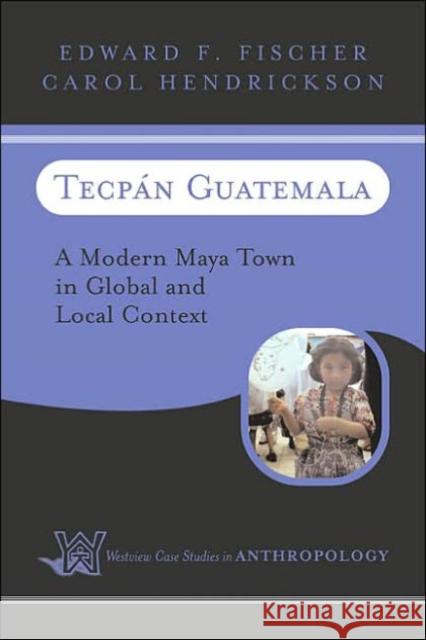Tecpan Guatemala: A Modern Maya Town in Global and Local Context » książka
Tecpan Guatemala: A Modern Maya Town in Global and Local Context
ISBN-13: 9780813337227 / Angielski / Miękka / 2002 / 180 str.
Tecpan Guatemala: A Modern Maya Town in Global and Local Context
ISBN-13: 9780813337227 / Angielski / Miękka / 2002 / 180 str.
(netto: 194,67 VAT: 5%)
Najniższa cena z 30 dni: 186,33
ok. 16-18 dni roboczych.
Darmowa dostawa!
This case study of a highland Guatemala town examines what it means to be Maya in a rapidly changing and globalized world. In providing an historical synopsis of the Kaqchikel Maya from pre-Columbian and Colonial times to the present day, this volume focuses on the dynamics of clutural boundaries in light of the use of the Kaqchikel language versus Spanish, the growing role of Protestantism and the revitalization of Maya religion versus Catholicism, and the effects of violent civil war on social networks. It examines the role of weaving and export agriculture in linking Tecpanecos to larger economic and political orbits and for defining local, regional, and national identities. As a result, this accessibly written book demonstrates that even seemingly traditional Maya cultural forms are actively constructed in the context of intense global connections.











